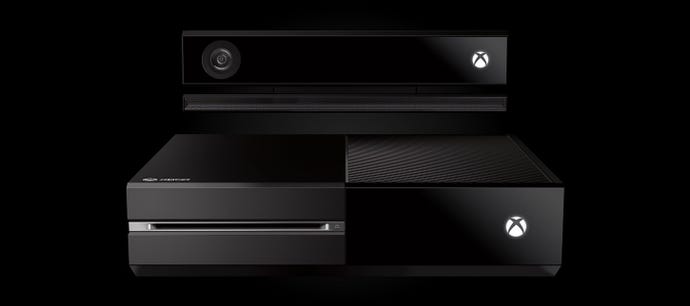I Wish Microsoft Kept Its Awful Xbox One Policies
The quick reversal of anti-consumer policies is nice, but Microsoft and other companies are now likely to take the wrong lessons away from the debacle.
This article first appeared on USgamer, a partner publication of VG247. Some content, such as this article, has been migrated to VG247 for posterity after USgamer's closure - but it has not been edited or further vetted by the VG247 team.
It was supposed to be such a fascinating start to a new console generation. Sony was going to launch a consumer-friendly PlayStation 4 and help expose the world to a wealth of quirky and interesting indie games in the process. Meanwhile, Microsoft was doubling down on DRM with the Xbox One, releasing a system designed from the ground up to tightly control the user experience, requiring daily online authentication and neutering the second-hand market with unspecified transfer fees.
But the loss here isn't just for rubberneckers who enjoy a good gaming industry train wreck. I think in the long term, the big losers will wind up being the consumers. The cancelled policies were generally awful, unnecessary, and anti-consumer. Had the system launched and failed, we would have a fantastic cautionary tale to work with, right up there with "Don't try a surprise launch of your new system" (Sega Saturn), "Don't price your system at 599 US dollars" (Sony PlayStation 3), and "Don't be the Atari Jaguar" (Atari Jaguar). Notice that all of those cautionary tales have been well heeded in the industry. We haven't had a surprise launch for a new system (only redesigns), hardware prices are a bit lower for next-gen, and the Atari Jaguar remains a singular flop.

Now what will the big lesson from the Xbox One be? It won't be "Don't implement aggressively anti-consumer policies." Microsoft's about-face was swift enough and (at first glance) total enough that the Xbox One has time to recover. When it launches later this year, gamers won't care about what Microsoft tried to do with the system. They won't care about the company's future-of-entertainment endgame, its desire to squash consumer rights, to dictate who can play what and how. They'll care that they can play Titanfall, and then trade it in for $6 when Titanfall 2 comes out.
For Microsoft, the response will not be a fundamental rethinking of its positions. It will instead be a rethinking of how it presents those positions to consumers.
For Microsoft, the response will not be a fundamental rethinking of its positions. It will instead be a rethinking of how it presents those positions to consumers. The next time the company tries this (and assuming it stays in the console market, it will), the policies will be determined well ahead of time, and the executive cadre will be on the same page about them. Gamers will be several years more comfortable with digital distribution, and those griping about wanting to hold onto physical media will be akin to the niche purists who still buy LPs instead of downloading or streaming their music.
If you don't believe that, take a look at the debacle that has been always-online DRM. Ubisoft tried it years ago with its PC games, the horrible scheme predictably introduced headaches for customers while offering them literally nothing in return, and the publisher eventually dropped the practice. It was a flame-out, but not a spectacular enough one to enter the realm of cautionary tale. So Blizzard went ahead and put always-online DRM into Diablo III, publicly messaging it as crucial to maintaining the security of a key piece of the game, the real-money auction house. That security wound up being compromised anyway, and now that there are auction house-free console versions of the game on the way, it's suddenly much less vital to Blizzard's vision for the game. Then there was EA's SimCity, which required an always-online connection so it could leverage the power of the cloud for all kinds of stuff it didn't actually do. Both games had horrible issues with legitimate customers being unable to play the game for long stretches of time at launch, both were widely decried by gamers for their DRM, and both avoided cautionary tale status by selling millions of copies.

Despite the online outrage each of those online-DRM attempts generated, it didn't make the concept toxic. Customers kept coming back, kept accepting excuses for why a single customer wanting to play alone would absolutely need to be connected to the publisher's servers. When the online furor over stripping away some basic notions of ownership in games didn't translate into real-world financial ruin, Microsoft decided to build its next-gen console around the idea of vastly expanding its control over users' access to purchased content.
With Xbox One, the online uproar clearly shook Microsoft's resolve on the issue, and precipitated the panicked back pedaling we saw yesterday. But gamers aren't very good at holding grudges, and I don't expect resentment over the original Xbox One plan to stop anyone from buying the system if they decide it has enough interesting games to be worth the asking price. So in the absence of a cautionary tale-worthy catastrophe, I suspect all consumers have won in the long term here is a more competently run campaign to erode their rights the next time Microsoft or some other company decides their customers are actually a hindrance to the bottom line instead of the reason it exists in the first place.

